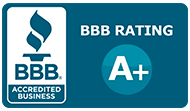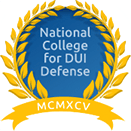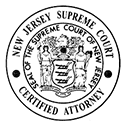Woodbridge Conditional Discharge Attorneys
Conditional discharge is the diversionary program that permits an individual to avoid prosecution for possession of 50 grams or less of marijuana, possession of drug paraphernalia or failure to make lawful disposition of CDS. If you were charged with one of these offenses, you can escape a criminal record and all of the other consequences that come with a conviction on the charge by completing the conditional discharge. Our attorneys are highly experience in securing admission into this program as advocates that have been serving the municipal court in East Brunswick, Piscataway, New Brunswick, Edison and Woodbridge for several decades. The lawyers at The Law Offices of Jonathan F. Marshall have also had the benefit of learning how the court system works from the inside as former prosecutors in approximately 25 towns, as well as at the Middlesex County Prosecutor’s Office. An attorney that is amply qualified to successfully gain admission into the conditional discharge program is available to assist you 24/7 by contacting our Woodbridge Office at 732-751-4458.
Obtaining a Conditional Discharge in East Brunswick or Another Municipality
There are strict eligibility requirements for admission into conditional discharge in a town like East Brunswick, not to mention rules that must be adhered to in order to satisfactorily complete the program. N.J.S.A. 2C:36A-1 provides for the discharge of a marijuana possession offense or other municipal court drug charge if the applicant is a first time offender with no prior criminal record nor diversionary program participation (e.g. Pretrial Intervention, conditional dismissal or condition discharge). If admission is granted, prosecution of the drug charge is suspended for a period of up to three years although the norm is one year. Provided the accused adheres to the conditional discharge requirements during the period of suspension of proceedings, the charge is permanently dismissed at the conclusion of the term.
Fines, Assessments & Other Financial Requirements. An individual admitted into the conditional discharge program is required to pay a $50 VCCB assessment, $75 Safe Neighborhood Services Fund assessment, a $500 Drug Enforcement and Demand reduction penalty, a $50 D.A.R.E. penalty, a $50 laboratory fee, a $75 juror compensation fee, and $33 in court costs. The total approximates $833 in total financial consequences.
Supervised or Unsupervised Probation. A judge has discretion to require unsupervised or supervised probation during the period of suspension of proceedings. If the there is any supervisory involvement, which typically is the case, the defendant may be requested to submit to a random drug test.
Requirements In Order to Successfully Complete the Conditional Discharge Program. The participant must remain arrest and drug free and adhere to any other requirements, including any community service or court ordered counseling, over the term of the conditional discharge.
Suspension of Driving Privileges. There usually is no license suspension imposed since the norm is for someone to be admitted without entry of a guilty plea. If a guilty plea is required as a condition of admission, then the mandatory 6-24 month license suspension is triggered. It should also be noted that possession of CDS in a motor vehicle is entirely separate charge which may trigger a license suspension in the event this charge is not dismissed as a result of merger.
Conditional Discharge v. Pretrial Intervention. Conditional discharge only applies in drug cases in municipal court whereas Pretrial Intervention is only used to divert cases involving an indictable offense (e.g. third degree and fourth degree crimes).
Conditional Discharge v. Conditional Dismissal. The conditional dismissal is also a program to obtain diversion of municipal court but only those which are non-drug related like a disorderly persons offense for shoplifting and simple assault.
Criminal Record. Completion of a conditional discharge results in a dismissal of the original criminal offense with prejudice but does not eliminate a record of the arrest. In order to remove your finger prints, mug shot and any other evidence of your being arrested, you need to file for expungement of these records.
New Brunswick NJ Conditional Discharge Lawyer
If you are a Rutgers University student or anyone else who has been charged a CDS offense in New Brunswick, including under the influence of drugs, you may be eligible for conditional discharge. A lawyer at The Law Offices of Jonathan F. Marshall will assess your status in this regard and, more importantly, insure that there are no glitches to your securing this relief so that a conviction is averted. Contact our New Brunswick Office anytime 24/7 at 732-246-7126 to speak to one of our attorneys immediately.













